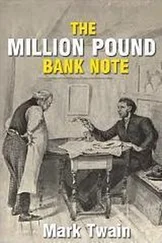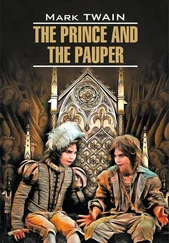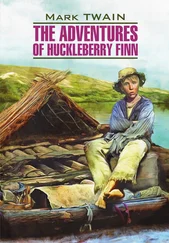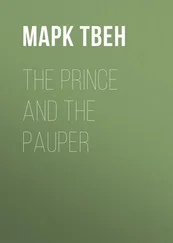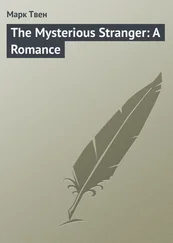Марк Твен - The Tragedy of Pudd'nhead Wilson
Здесь есть возможность читать онлайн «Марк Твен - The Tragedy of Pudd'nhead Wilson» — ознакомительный отрывок электронной книги совершенно бесплатно, а после прочтения отрывка купить полную версию. В некоторых случаях можно слушать аудио, скачать через торрент в формате fb2 и присутствует краткое содержание. Издательство: Иностранный паблик, Жанр: foreign_antique, foreign_prose, на английском языке. Описание произведения, (предисловие) а так же отзывы посетителей доступны на портале библиотеки ЛибКат.
- Название:The Tragedy of Pudd'nhead Wilson
- Автор:
- Издательство:Иностранный паблик
- Жанр:
- Год:неизвестен
- ISBN:нет данных
- Рейтинг книги:4 / 5. Голосов: 1
-
Избранное:Добавить в избранное
- Отзывы:
-
Ваша оценка:
- 80
- 1
- 2
- 3
- 4
- 5
The Tragedy of Pudd'nhead Wilson: краткое содержание, описание и аннотация
Предлагаем к чтению аннотацию, описание, краткое содержание или предисловие (зависит от того, что написал сам автор книги «The Tragedy of Pudd'nhead Wilson»). Если вы не нашли необходимую информацию о книге — напишите в комментариях, мы постараемся отыскать её.
The Tragedy of Pudd'nhead Wilson — читать онлайн ознакомительный отрывок
Ниже представлен текст книги, разбитый по страницам. Система сохранения места последней прочитанной страницы, позволяет с удобством читать онлайн бесплатно книгу «The Tragedy of Pudd'nhead Wilson», без необходимости каждый раз заново искать на чём Вы остановились. Поставьте закладку, и сможете в любой момент перейти на страницу, на которой закончили чтение.
Интервал:
Закладка:
Was she bad? Was she worse than the general run of her race? No. They had an unfair show in the battle of life, and they held it no sin to take military advantage of the enemy – in a small way; in a small way, but not in a large one. They would smouch provisions from the pantry whenever they got a chance; or a brass thimble, or a cake of wax, or an emery-bag, or a paper of needles, or a silver spoon, or a dollar bill, or small articles of clothing, or any other property of light value; and so far were they from considering such reprisals sinful, that they would go to church and shout and pray the loudest and sincerest with their plunder in their pockets. A farm smoke-house had to be kept heavily padlocked, for even the colored deacon himself could not resist a ham when Providence showed him in a dream, or otherwise, where such a thing hung lonesome and longed for some one to love. But with a hundred hanging before him the deacon would not take two – that is, on the same night. On frosty nights the humane negro prowler would warm the end of a plank and put it up under the cold claws of chickens roosting in a tree; a drowsy hen would step on to the comfortable board, softly clucking her gratitude, and the prowler would dump her into his bag, and later into his stomach, perfectly sure that in taking this trifle from the man who daily robbed him of an inestimable treasure – his liberty – he was not committing any sin that God would remember against him in the Last Great Day.
“Name the thief!”
For the fourth time Mr. Driscoll had said it, and always in the same hard tone. And now he added these words of awful import:
“I give you one minute” – he took out his watch. “If at the end of that time you have not confessed, I will not only sell all four of you, but – I will sell you down the river!”
It was equivalent to condemning them to hell! No Missouri negro doubted this. Roxy reeled in her tracks and the color vanished out of her face; the others dropped to their knees as if they had been shot; tears gushed from their eyes, their supplicating hands went up, and three answers came in the one instant:
“I done it!”
“I done it!”
“I done it! – have mercy, marster – Lord have mercy on us po’ niggers!”
“Very good,” said the master, putting up his watch, “I will sell you here though you don’t deserve it. You ought to be sold down the river.”
The culprits flung themselves prone, in an ecstasy of gratitude, and kissed his feet, declaring that they would never forget his goodness and never cease to pray for him as long as they lived. They were sincere, for like a god he had stretched forth his mighty hand and closed the gates of hell against them. He knew, himself, that he had done a noble and gracious thing, and was privately well pleased with his magnanimity; and that night he set the incident down in his diary, so that his son might read it in after years, and be thereby moved to deeds of gentleness and humanity himself.
CHAPTER III.
Roxy Plays a Shrewd Trick
Whoever has lived long enough to find out what life is, knows how deep a debt of gratitude we owe to Adam, the first great benefactor of our race. He brought death into the world. – Pudd’nhead Wilson’s Calendar.
Percy Driscoll slept well the night he saved his house-minions from going down the river, but no wink of sleep visited Roxy’s eyes. A profound terror had taken possession of her. Her child could grow up and be sold down the river! The thought crazed her with horror. If she dozed and lost herself for a moment, the next moment she was on her feet flying to her child’s cradle to see if it was still there. Then she would gather it to her heart and pour out her love upon it in a frenzy of kisses, moaning, crying, and saying, “Dey sha’n’t, oh, dey sha’n’t! – yo’ po’ mammy will kill you fust!”
Once, when she was tucking it back in its cradle again, the other child nestled in its sleep and attracted her attention. She went and stood over it a long time communing with herself:
“What has my po’ baby done, dat he couldn’t have yo’ luck? He hain’t done noth’n’. God was good to you; why warn’t he good to him? Dey can’t sell you down de river. I hates yo’ pappy; he hain’t got no heart – for niggers he hain’t, anyways. I hates him, en I could kill him!” She paused awhile, thinking; then she burst into wild sobbings again, and turned away, saying, “Oh, I got to kill my chile, dey ain’t no yuther way, – killin’ him wouldn’t save de chile fum goin’ down de river. Oh, I got to do it, yo’ po’ mammy’s got to kill you to save you, honey” – she gathered her baby to her bosom, now, and began to smother it with caresses – “Mammy’s got to kill you – how kin I do it! But yo’ mammy ain’t gwine to desert you – no, no; dah , don’t cry – she gwine wid you, she gwine to kill herself too. Come along, honey, come along wid mammy; we gwine to jump in de river, den de troubles o’ dis worl’ is all over – dey don’t sell po’ niggers down the river over yonder .”
She started toward the door, crooning to the child and hushing it; midway she stopped, suddenly. She had caught sight of her new Sunday gown – a cheap curtain-calico thing, a conflagration of gaudy colors and fantastic figures. She surveyed it wistfully, longingly.
“Hain’t ever wore it yet,” she said, “en it’s jist lovely.” Then she nodded her head in response to a pleasant idea, and added, “No, I ain’t gwine to be fished out, wid everybody lookin’ at me, in dis mis’able ole linsey-woolsey.”
She put down the child and made the change. She looked in the glass and was astonished at her beauty. She resolved to make her death-toilet perfect. She took off her handkerchief-turban and dressed her glossy wealth of hair “like white folks”; she added some odds and ends of rather lurid ribbon and a spray of atrocious artificial flowers; finally she threw over her shoulders a fluffy thing called a “cloud” in that day, which was of a blazing red complexion. Then she was ready for the tomb.
She gathered up her baby once more; but when her eye fell upon its miserably short little gray tow-linen shirt and noted the contrast between its pauper shabbiness and her own volcanic irruption of infernal splendors, her mother-heart was touched, and she was ashamed.
“No, dolling, mammy ain’t gwine to treat you so. De angels is gwine to ’mire you jist as much as dey does yo’ mammy. Ain’t gwine to have ’em putt’n’ dey han’s up ’fo’ dey eyes en sayin’ to David en Goliah en dem yuther prophets, ‘Dat chile is dress’ too indelicate fo’ dis place.’”
By this time she had stripped off the shirt. Now she clothed the naked little creature in one of Thomas à Becket’s snowy long baby-gowns, with its bright blue bows and dainty flummery of ruffles.
“Dah – now you’s fixed.” She propped the child in a chair and stood off to inspect it. Straightway her eyes began to widen with astonishment and admiration, and she clapped her hands and cried out, “Why, it do beat all! – I never knowed you was so lovely. Marse Tommy ain’t a bit puttier – not a single bit.”
She stepped over and glanced at the other infant; she flung a glance back at her own; then one more at the heir of the house. Now a strange light dawned in her eyes, and in a moment she was lost in thought. She seemed in a trance; when she came out of it she muttered, “When I ’uz a-washin’ ’em in de tub, yistiddy, his own pappy asked me which of ’em was his’n.”
She began to move about like one in a dream. She undressed Thomas à Becket, stripping him of everything, and put the tow-linen shirt on him. She put his coral necklace on her own child’s neck. Then she placed the children side by side, and after earnest inspection she muttered —
Читать дальшеИнтервал:
Закладка:
Похожие книги на «The Tragedy of Pudd'nhead Wilson»
Представляем Вашему вниманию похожие книги на «The Tragedy of Pudd'nhead Wilson» списком для выбора. Мы отобрали схожую по названию и смыслу литературу в надежде предоставить читателям больше вариантов отыскать новые, интересные, ещё непрочитанные произведения.
Обсуждение, отзывы о книге «The Tragedy of Pudd'nhead Wilson» и просто собственные мнения читателей. Оставьте ваши комментарии, напишите, что Вы думаете о произведении, его смысле или главных героях. Укажите что конкретно понравилось, а что нет, и почему Вы так считаете.

